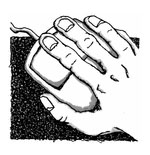
March 1997
What Happened to the Sacrament of Confession?
As an evangelical, I took special interest in Bobby Jindal’s article “How Catholicism is Different” (Dec.). He describes the Catholic Church’s claim to be the true Church founded by Christ, which necessarily follows from the Church’s doctrines of apostolic succession and sacramental grace.
All this would be much more credible to non-Catholics if the Church acted as if she believed it to be true. If forgiveness of sins was given to the apostles’ successors through the sacrament of Confession, then the Church has a special responsibility to promote that sacrament. However, it’s been my experience that the Church has been content to let evangelical Protestants be the ones to take the fight back to the Enemy’s gates. Worse yet, the Church has left many of her own members defenseless when it comes to spiritual warfare.
Thomas J. Kunsitis
Richmond, Virginia
From a Liberal Evangelical
I am a non-Catholic Christian, and the NOR is the only magazine I read cover to cover. Allow me to explain why I appreciate the NOR so much.
Were I to label my position, I suppose I’d call myself a “mildly liberal evangelical.” The problem with this position, however, is that liberalism is a precarious perch. I’m willing to live with the inherent instability of my “liberalism” because I believe it’s true and because instability and doubt are unalterable conditions of life. But liberalism is an easy path, and that concerns me. Liberalism’s broad, smooth, gentle downward slope can quickly lead to a runaway dissolution of faith. I want to be challenged by intelligent and well-presented “conservative” arguments. I want to study the convictions of those who, in some ways, affirm and live a more difficult set of doctrines. Above all, I want my own natural tendency toward the easy, the comfortable, and the popular to be held in check.
Robert J. Schier Jr.
Orinda, California
You May Also Enjoy
Hundreds of Catholic groups -- dioceses and religious orders -- help fund their work through investments in porn-related companies.
'Procreation' encompasses the fact that the couple acts for (pro) the Creator and is given the privilege of co-operating with God in the genesis of new life.
Horrifyingly Accurate... Oxford Slipping?... Christocentric or Anthropocentric?... Not At Any Price... Our Boys Fought for Gordon Zahn... Parades or Prayers?... What Would Be Worse?...
